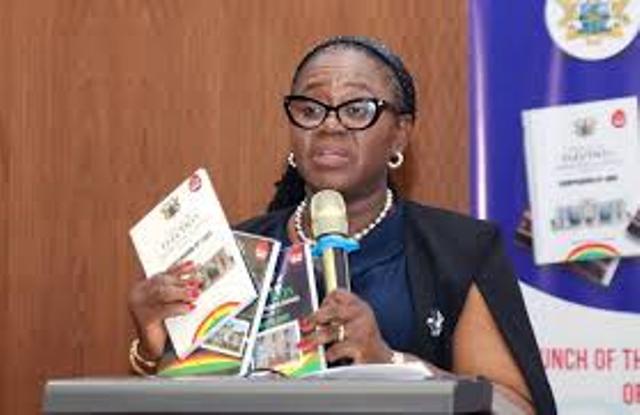The Judiciary of Ghana has launched the fifth edition of its Manual on Election Adjudication in preparation for the 2024 elections.
This updated edition, now divided into three volumes, underscores the judiciary’s critical role in managing electoral disputes under the provisions of Articles 64 and 99 of the 1992 Constitution.
The manual is expected to provide clear guidelines on the judicial pathways for resolving electoral disputes, bolstering transparency, fairness and efficiency in the legal processes surrounding elections.
Chief Justice Gertrude Sackey Torkornoo, who presided over the launch in Accra on Thursday, highlighted the significant responsibility the judiciary bears in safeguarding democratic processes.
“Elections are, by their nature, high-stakes events involving immense energy, passion, and resources. Our Judiciary must remain steadfastly focused on the law, rights, and frameworks that ensure justice is accessible, even amid the heightened tensions that election contests often bring,” Chief Justice Torkornoo stated.
She emphasised that over the years, the judiciary has continuously responded to the call of duty by addressing complex election-related disputes, often involving procedural issues, candidate eligibility, and even election results.
“While not all decisions satisfy all parties, the judiciary’s consistent approach has established clear principles that uphold the integrity of democracy in Ghana,” she added.
In light of recent security concerns, including court closures in the northern regions, Chief Justice Torkornoo urged national unity and support for the administration of law and justice as the country approaches its next election cycle.
“It is in the national interest for everyone to rally around the judicial process, ensuring a smooth and peaceful election that preserves the integrity of our democracy,” the Chief Justice urged.
Chief Justice Torkornoo urged the public to utilize the manual widely, underscoring that its broad usage would contribute to a stronger, more informed democracy.
Baffoe Bonnie, Justice of the Supreme Court and Chairman of the Election Management Committee, noted that this edition results from extensive collaboration with stakeholders in the electoral ecosystem, such as the Center for Democratic Development (CDD-Ghana), the Institute for Democratic Governance (IDEG), the National Peace Council, and both local and international observers.
He emphasized that the committee’s consultations have aimed at refining adjudication processes, including establishing timelines for addressing election disputes.
The three-volume manual provides an invaluable resource for judges, legal practitioners, civil society organizations, and the media.
Volume 1 addresses procedural guidelines for initiating actions in the appropriate courts for election disputes, Volume 2 outlines relevant statutes governing public elections, and Volume 3 offers a digest of election-related case law, including decisions from Ghana’s Supreme Court.
This comprehensive structure reflects evolving election laws while remaining grounded in principles that have guided previous editions.
In addition to being a valuable reference for the judiciary, the manual is designed to assist election administrators, candidates, and media professionals in understanding electoral laws and procedures, ultimately reducing misunderstandings and fortifying democratic values across Ghana.








